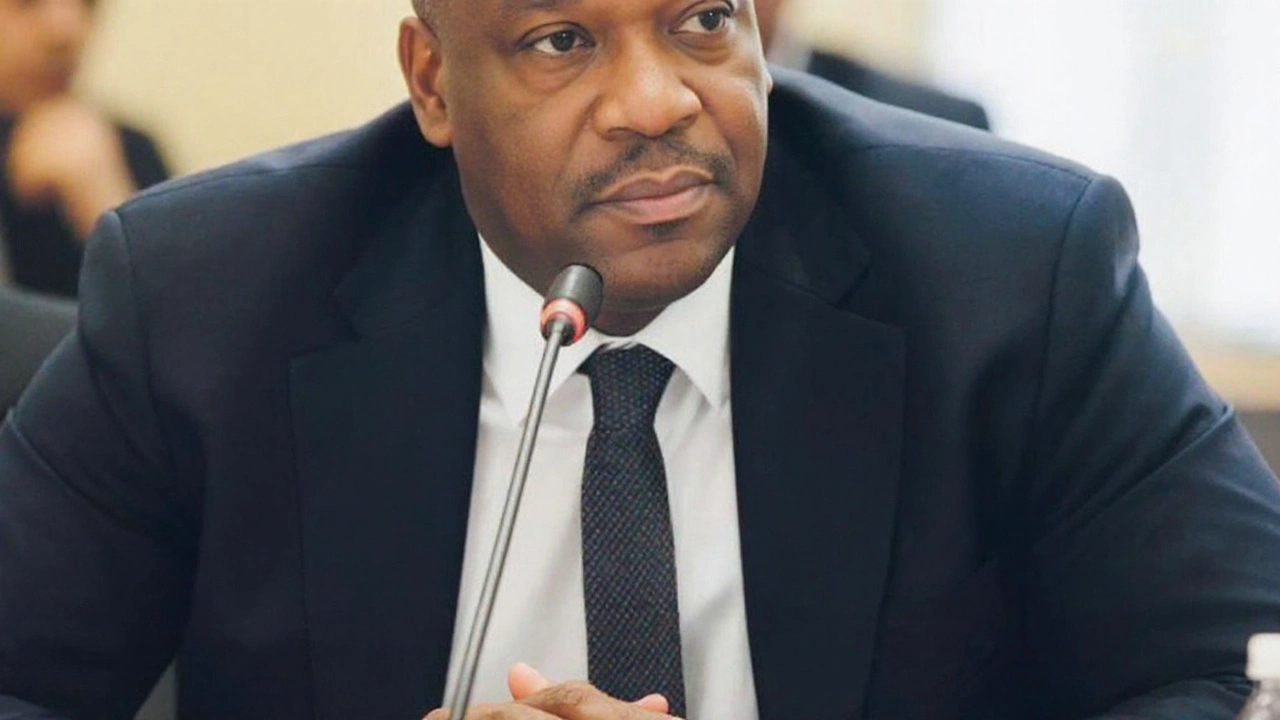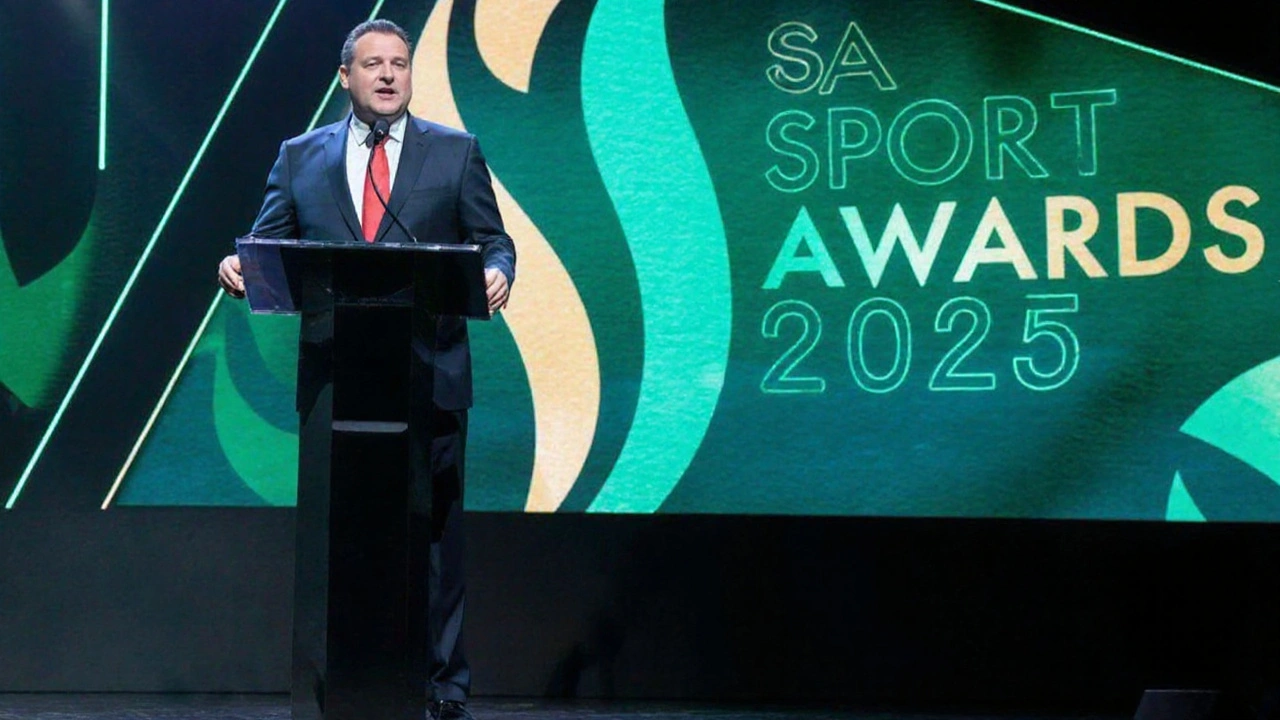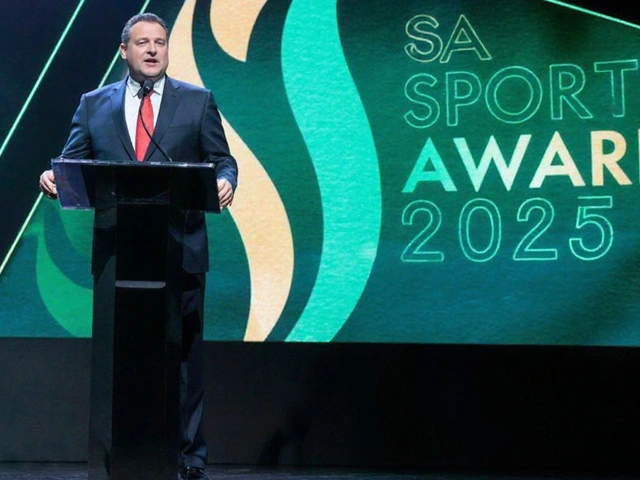The town council of Gayton announced a surprising budget adjustment this week, stripping the national tug‑of‑war federation of its annual grant and redirecting those funds toward installing VAR (video‑assistant referee) systems in the region's football stadiums. The reallocation, amounting to roughly £750,000, represents nearly 30% of the council's discretionary sports spending for the fiscal year.
Why the shift matters
VAR has become a hot topic in professional football, hailed for catching clear errors but also criticized for disrupting game flow. Gayton’s two top‑tier clubs have long lobbied for the technology, arguing it could level the playing field against richer rivals and draw more fans to match‑day tickets.
Supporters of the move, including the mayor and the local football association, claim the investment will generate a tangible return: higher ticket sales, increased media coverage and the lure of new sponsors eager to associate with a "high‑tech" league.

Reactions from the tug‑of‑war community
The tug‑of‑war federation, which had relied on the grant for equipment, training camps and international competition travel, expressed disappointment. Federation president Lena Watkins warned that the cut could force the sport’s national team to miss upcoming World Championships.
Grassroots clubs have also voiced concerns. A survey of 42 local clubs showed that 68% of members feel the council is favoring mainstream sports at the expense of diversity and tradition.
In response, council members organised a public forum, inviting both football and tug‑of‑war representatives to discuss the long‑term vision for sports funding. During the meeting, football coach Marco Ruiz highlighted the safety benefits of VAR, citing reduced controversy over penalty decisions that have historically led to on‑field clashes.
Meanwhile, a coalition of alternative‑sport advocates drafted a petition demanding a reinstatement of the tug‑of‑war grant or at least a partial restoration. The petition quickly gathered over 3,500 signatures, signaling strong community engagement.
Financial analysts note that the reallocation aligns with broader trends: many municipalities are prioritising sports that draw larger audiences and media rights deals. However, they caution that abandoning niche disciplines could erode the city’s reputation for supporting a diverse athletic ecosystem.
As the VAR rollout begins, the first stadiums slated for installation are the Gayton United Arena and Riverside FC’s home ground, both expected to be operational before the upcoming season kick‑off in October. Training sessions for referees on the new system are already underway, with a focus on swift decision‑making to minimise game interruptions.



Comments
Adding VAR to the stadiums is a solid move from a tech standpoint, especially since the equipment can be repurposed for other events later on.
It also gives local clubs a chance to attract bigger sponsors who want that high‑tech image.
From a budgeting view, shifting £750k away from tug‑of‑war frees up cash that would otherwise sit unused.
The federation can still look for private donors or regional grants to cover the shortfall.
Overall, the community gets a modernized football experience while the niche sport can explore alternative funding streams.
Just make sure the rollout includes proper referee training to keep game flow smooth.
While you wax poetic about “modernization,” you’re ignoring the cultural erosion that comes with glorifying a sport that’s already a global monopoly.
Football may be flashy, but tug‑of‑war carries centuries of communal tradition that money can’t replace.
Diverting public funds to chase TV ratings is a classic example of a council pandering to commercial interests over local heritage.
We’re essentially telling the community that only the loudest, most marketable sports deserve support.
That mindset threatens the very diversity that makes Gayton unique.
Instead of funding another video box, they could have invested in grassroots programs that keep families together.
The decision feels like a surrender to the homogenizing forces of big‑league capitalism.
History will judge us on whether we preserved or abandoned our lesser‑known disciplines.
What a sad turn for tug‑of‑war fans 😢
I get why the council is excited about VAR – it’s a buzzword that sells tickets.
At the same time, the tug‑of‑war community isn’t just a footnote; they’ve built a tight‑knit network over decades.
Balancing high‑profile investments with grassroots support is tricky, but not impossible.
If the council sets up a transparent budget review, everyone could see where the trade‑offs lie.
That way the conversation stays constructive rather than turning into a blame game.
Exactly, transparency could be the bridge we need.
When people see the numbers, they’re more likely to understand the constraints.
Hopeful that the council will host a follow‑up forum to address the tug‑of‑war concerns head‑on.
It would be great to hear concrete ideas for alternative funding.
the council should look at other funding sources for tug of war the sport still needs equipment and travel support
maybe local businesses can step in or a small levy on match tickets could help
I agree that diversifying the revenue base is essential, but we also have to acknowledge the realistic limits of what a small town can raise.
Implementing a modest surcharge on football tickets could generate a steady stream for the tug‑of‑war federation without overburdening fans.
At the same time, seeking partnerships with regional sponsors who value community sports could provide the needed gear and travel funds.
It’s about creating a win‑win where the high‑visibility sport helps subsidize the less‑visible one.
Let’s keep the dialogue open and data‑driven.
Honestly, money is just a medium, not the meaning of sport.
We chase shiny tech like VAR because we think it equals progress, but progress without soul is hollow.
Think about the rope, the tension, the human will in tug‑of‑war – that’s a story money can’t buy.
Yet the council sees a screen and thinks that’s enough to keep fans happy.
It’s a classic case of mistaking the flash for the substance.
If we let the allure of video replays drown out the grit of a rope pull, we lose something essential.
Maybe the answer isn’t more screens but more spaces where real competition happens.
Just a thought.
Let’s cut through the sentimental fluff and look at the cold hard numbers. First, the VAR installation cost £750k, which translates to roughly £12,500 per seat in a 60,000‑capacity stadium – a figure that many supporters will never even notice on a ticket. Second, the tug‑of‑war grant previously funded 42 clubs, giving each an average of £5,000 for equipment, travel, and coaching; that money kept the sport visible on the national stage. Third, the projected revenue boost from VAR is tenuous at best, relying on an optimistic 5% increase in attendance that historically never materializes in lower‑division leagues. Fourth, the council’s decision ignores the fact that tug‑of‑war brings in community cohesion benefits that are difficult to quantify but crucial for social health. Fifth, by sidelining a niche sport, the council sends a message that only high‑profile, media‑driven activities deserve public money, which can erode public trust. Sixth, the petition of 3,500 signatures shows genuine grassroots opposition, yet the council’s response appears dismissive. Seventh, the supposed “safety” benefits of VAR are largely anecdotal and often lead to longer game interruptions, something fans already complain about. Eighth, the allocation also neglects the potential for shared use of VAR technology across other local events, a point that was never explored. Ninth, the council could have opted for a phased rollout, testing VAR in one venue before committing the full budget. Tenth, the financial analysts who support the move often have undisclosed ties to the clubs that stand to profit. Eleventh, there is a clear conflict of interest when council members also sit on the boards of those clubs. Twelfth, the long‑term maintenance costs for VAR hardware are not included in the £750k figure and could run into additional six‑figures over the next five years. Thirteenth, the loss of the tug‑of‑war grant could force talented athletes to quit, diminishing the town’s representation in international competitions. Fourteenth, the broader implication is that cultural diversity in sports is being sacrificed at the altar of commercialism. Fifteenth, before any further funds are spent, the council should hold a transparent town hall, openly share the cost‑benefit analysis, and consider reinstating at least a partial portion of the tug‑of‑war grant.
Interesting how the council frames the VAR upgrade as a revenue driver – I’d love to see the actual projected numbers.
Do we have any data on expected ticket sales bump?
Those “projections” are likely cooked by the clubs’ PR teams to justify siphoning public money.
Don’t be fooled.
The juxtaposition of modern technology against age‑old tradition raises a philosophical dilemma about what we value in sport.
Is the essence of competition found in the precision of a video replay, or in the raw, unmediated struggle of muscles against rope?
When a council reallocates funds, it is not merely shifting dollars; it is signaling a hierarchy of cultural priorities.
In doing so, it asks the community to implicitly agree that the spectacle of football outweighs the communal bonding of tug‑of‑war.
Such decisions ripple through the social fabric, influencing how younger generations perceive the worth of diverse athletic pursuits.
Moreover, the economic argument hinges on assumptions about fan behavior that may never materialize.
History shows that fan loyalty is not easily bought with technology alone.
Meanwhile, the intangible benefits of niche sports – camaraderie, local identity, inclusive participation – remain undervalued.
One could argue that preserving these benefits requires a deliberate, perhaps even sacrificial, investment.
Thus, the council stands at a crossroads: to forge ahead with a homogenizing, market‑driven vision, or to champion a pluralistic sporting landscape.
Either path will define Gayton’s cultural legacy for decades to come.
Choosing wisely demands more than spreadsheets; it demands a collective reflection on community identity.
Well said – it’s about identity, not just numbers.
Hey folks, as a coach I can say VAR will help us avoid nasty disputes on the pitch, but we still need to teach players sportsmanship off the field.
The council’s financial reallocation should be accompanied by a comprehensive impact assessment that quantifies both economic and social outcomes.
Agreed, let’s demand that report now.
From a strategic standpoint, leveraging VAR as a value‑add service can create new sponsorship pipelines and unlock ancillary revenue streams, such as premium broadcast packages.
That said, a phased integration approach mitigates risk while allowing for iterative feedback loops.
Stakeholder alignment will be key – we need the clubs, fans, and local businesses all on board.
Optimistically, this could set a benchmark for other municipalities looking to modernize their sports infrastructure.
It’s encouraging to see the community rally around both football and tug‑of‑war, because true inclusivity means elevating all voices.
When we allocate resources, we should strive for a model that funds high‑visibility projects while also preserving the grassroots initiatives that foster participation across ages and abilities.
Mentorship programs could bridge the gap, pairing seasoned football officials with tug‑of‑war organizers to share best practices in governance and fundraising.
In addition, joint community events that showcase both sports can raise awareness and attract diverse sponsors.
By adopting a holistic funding framework, Gayton can become a case study in balancing technological advancement with cultural heritage.
Let’s keep the dialogue open, data‑driven, and compassionate, ensuring that every athlete feels valued.